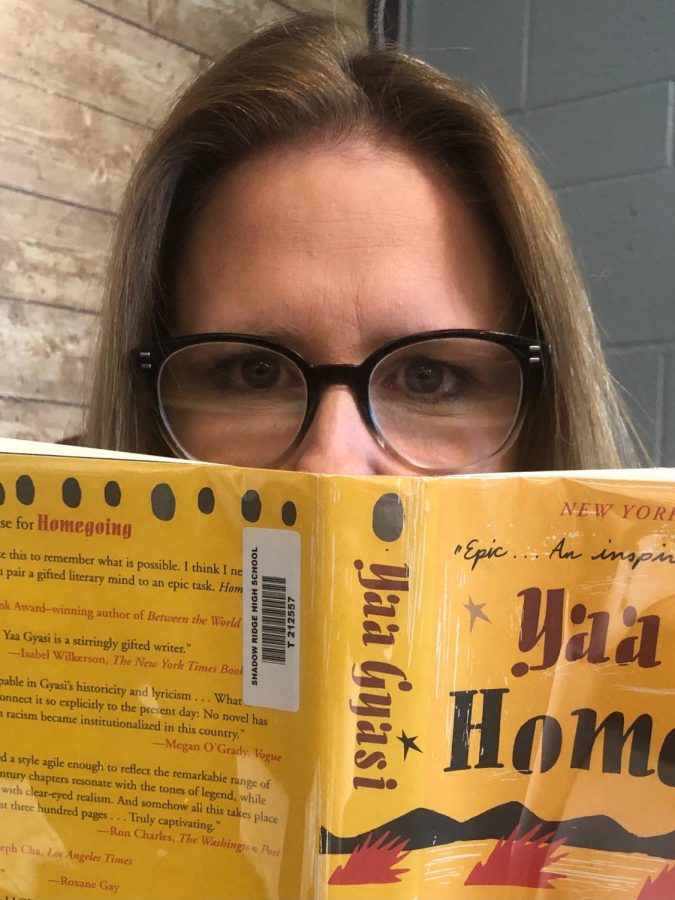Were Students Prepared For AP Exams?

Photo Courtesy of Google Images
Students are taking AP exams now in May.
May 17, 2021
Throughout May students have been taking their AP exams and seeing if the work they put into their AP classes will pay off with college credit. Some students have had the pleasure of going to in-person testing at Shadow, while others are opting to take their exams online. However, with the unfortunate circumstances of this school year, did students feel properly prepared by their teachers for their AP exams?
Students who go for AP classes, rather than honors or regular classes, often do so because the class will typically look better to colleges, possibly give a boost to their GPA, and give the students a chance at earning college credits before college.
Alexander Orolfo, junior, also mentions, “I decided to take AP classes as I found them great for giving me a challenge and wanted that extra bit of in depth learning on subjects I already had a good handle on or even felt interested in.”
Teachers this year, specifically AP ones, faced the difficult task of online teaching. They had to adjust their teaching styles and decide on the most important content to teach – which seems impossible when anything could be on the AP exam.
Mrs. Mason, AP English Language teacher, shares, “Adjusting to this teaching AP online has been quite difficult. I had to cut out a lot of lessons, and really focus on the essentials needed for the exam. Debates and discussions, some of the best parts of the class, were nearly non-existent because of students’ nervousness to speak into a computer mic.”
Mr. Pack, AP World History teacher, adds, “I think every AP teacher struggled this year with balance. It was apparent from the onset of this year that we could not assign the same amount of work as in previous years. Every AP teacher wrestled with assigning just the right amount of work to prepare students for the exam while also trying not to overwhelm them. Some traditional activities (such as the Ghengis Khan trial) proved to be impossible to implement this year. However, when it came to socratic seminars and debates my AP students really shined, even more so than in previous years.”
Despite these challenges, AP teachers still felt that they were able to prepare their students for the exam. Mr. Pack describes that he worked with his classes on multiple strategies for the free response section, reviewed before every chapter quiz, and was available during office hours for conferences on how to improve essay writing and note taking. Students who took advantage of his office hours were more likely to be prepared.
Mrs. Mason says, “Students may not have gotten all the practice they needed, but I am confident that if students invested any time or effort into the lessons and activities I provided, that they were very well prepared.”
Students agree that though it might have been harder, their teachers were able to properly prepare them for the exam. Kadence Guiteras, sophomore, admits that her AP class being online made her not take the class as seriously as she normally would. She agrees, however, that her teacher did a great job of trying to prepare her for the exam.
Orolfo explains, “Most classes used college board’s videos and practice assignments to help teach the course and so it was an easy transition from practice to the actual test.”
There are some things that can’t be practiced for the exam though, as Mr. Pack highlights.
“Oftentimes the result of the exam does not adequately represent a student’s true ability. For example, AP World students are tasked with understanding 800 years of history. Scores fluctuate year to year as it is largely based on the free response questions. I really try to focus on getting students to understand the rubric and after scoring thousands of essays, being an AP reader; I feel it is one of my strengths. However, sometimes the free response questions might be based on an era in history that students are less comfortable or familiar with.”
He continues, “Passing an AP exam is quite an accomplishment. I would say that generally AP exams are more difficult than actual college final exams because college professors actually get to choose the content for their final exam. As a result, they tend to highlight and spend more time on that specific content. It puts AP teachers at a disadvantage since we never know the specific questions that will be on the exam every year.”
Despite feeling uncertain about her performance on the AP exam, Guiteras shares, “Everyone says that AP World History is really difficult, but I disagree. I don’t know if it’s because it’s online and made easier, but for future students I would say you get used to the notes and you learn lots. It’s a fantastic class that I highly recommend because it helps you make connections throughout history.”
Even if the AP exams may seem daunting to some students, just taking an AP class will help them in so many ways. Mr. Pack lists improved reading, writing, and notetaking skills alongside increased accountability and time management skills as only some of the ways that taking an AP class will help a student.
Mrs. Mason emphasizes, “I don’t want AP classes to be considered elitist classes for just a certain kind of student. I want every student of every ability level to try an AP class, especially a class like AP English Language where so much of what we focus on is practical life skills – distinguishing fact from opinion and dissecting how people are being persuaded. Every student can benefit from AP classes. Every AP class on campus will challenge students, and every student will walk away having learned something.”








Mrs. Mason • May 17, 2021 at 10:21 am
Very well written. Great job!